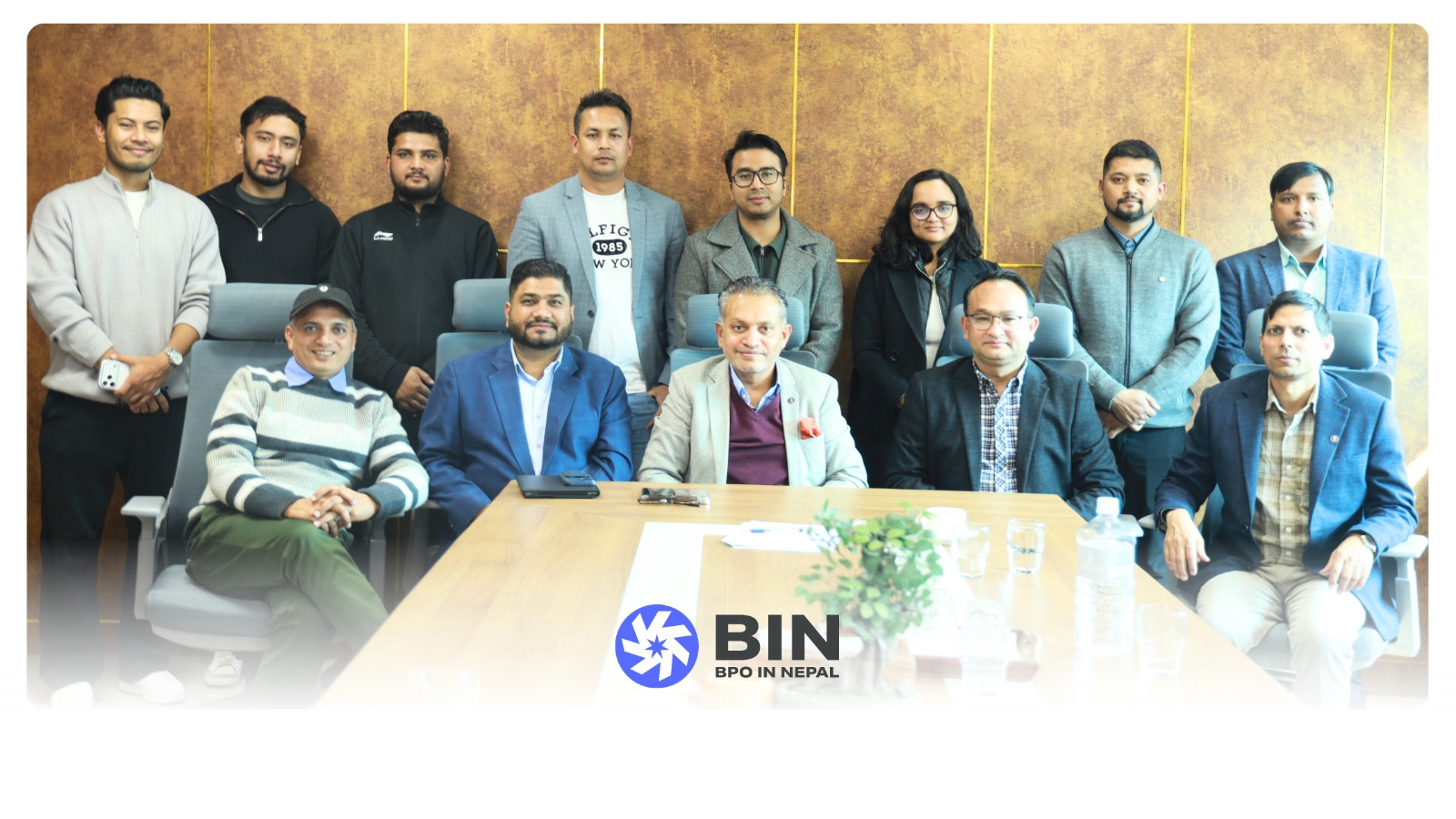Outsourced Customer Support: Pros, Cons & Best Practices

By Samunnati Shrestha, Creative Lead at BIN (Customer Support Services)
Category Customer Support
Published June 25 2025
As businesses scale and digital demands grow, customer support becomes one of the most critical touchpoints between a brand and its audience. However, building and maintaining an in-house support team isn’t always feasible especially for small to medium enterprises or fast-growing startups. This is where outsourced customer support becomes a viable, strategic solution.
At BIN, we provide professional voice and non-voice customer support services to businesses worldwide. In this guide, we explore the benefits and drawbacks of outsourcing customer support and share best practices to ensure it delivers optimal results.
Why Companies Choose to Outsource Customer Support
Outsourcing customer service allows businesses to meet customer expectations without overextending internal resources. Whether you’re a growing brand looking to scale support across time zones or a company focusing on core competencies, outsourcing helps streamline operations while maintaining service quality.
It’s a practical choice for companies that want to expand coverage to 24/7 without hiring night-shift teams, reduce operational costs, or quickly ramp up customer support during product launches or seasonal peaks. Outsourcing provides flexibility and access to skilled agents, all while allowing internal teams to focus on innovation, marketing, or core product development.
The Advantages of Outsourced Support
There are several compelling reasons why outsourcing customer service can be a smart move. First and foremost, it dramatically reduces labor costs, especially when working with offshore teams. Businesses can avoid expenses related to hiring, training, infrastructure, and benefits while gaining access to a full-service support team.
Outsourcing also improves scalability. Whether you’re expanding globally or just experiencing a surge in demand, outsourced teams can be scaled up or down as needed. Most providers offer multilingual support, helping brands cater to international audiences without language barriers.
Professional agencies like BIN bring years of experience, industry best practices, and ready-made systems, ensuring quick onboarding and consistent customer experience. They are equipped with modern CRM tools, trained agents, performance dashboards, and quality control measures that may take months to develop in-house.
In addition, outsourcing enables 24/7 support across time zones, enhancing responsiveness and customer satisfaction while giving your business a global footprint at minimal investment.
The Challenges and Considerations
Despite its advantages, outsourced customer support isn’t without challenges. One of the primary concerns is the potential loss of brand voice or personalization. When agents aren’t embedded within the company culture, the tone and empathy in conversations can sometimes feel off-brand.
There’s also a risk of reduced control over how interactions are handled. Unless properly managed, businesses may face inconsistent customer experiences or slower issue resolution due to communication gaps between the business and the vendor.
Time zone differences, language barriers, and cultural nuances can create misunderstandings or delays if the provider isn’t properly aligned. Security and compliance also become critical especially when handling sensitive customer data. Partnering with a reputable provider that prioritizes data protection and follows global compliance standards is essential.
Best Practices for Successful Outsourced Support
To maximize the ROI and avoid common pitfalls, businesses must treat outsourced support as a strategic partnership not just a cost-saving tactic.
Start by selecting a support partner who understands your industry, shares your customer-first values, and can adapt to your brand voice. At BIN, we customize scripts, tone guidelines, and knowledge bases to align with each client’s style and personality.
Set clear KPIs and SLAs (Service Level Agreements) from the outset. Monitor resolution time, CSAT scores, response time, and first-contact resolution to ensure consistent service quality. Provide your outsourcing team with access to relevant tools, CRM data, and product documentation, so they are empowered to offer helpful and timely solutions.
Regular training and calibration meetings help bridge cultural gaps and maintain alignment. Conduct periodic audits, collect feedback from customers, and use insights to refine the approach. Treat outsourced agents as part of your team acknowledging their contributions and ensuring open communication.
Security is equally important. Work only with providers who enforce strong data protection measures such as secure login protocols, role-based access, and regular compliance checks. A transparent, accountable support system protects your brand reputation and builds customer trust.
Voice vs. Non-Voice Outsourced Support
Understanding the right balance between voice and non-voice support is key when outsourcing. Voice support via phone calls or VoIP is personal and effective for handling complex, sensitive, or emotionally charged situations. It builds a stronger emotional connection with the customer and often results in faster resolutions.
Non-voice support, including email, chat, SMS, and social messaging, excels at managing high-volume, transactional queries. It is ideal for providing quick responses, step-by-step instructions, or handling support during off-hours. It also allows for multitasking and creates a written history of interactions.
At BIN, we recommend an omnichannel approach that integrates both voice and non-voice solutions. This ensures that customers can reach your brand on their preferred channels while enjoying a seamless and consistent experience.
When to Outsource (and When Not To)
Outsourcing is best suited for businesses that want to grow support without the overhead of hiring, require 24/7 availability, serve global customers, or need rapid scalability during peak seasons. It’s also ideal when launching a new product or entering new markets where local language and cultural understanding are crucial.
However, if your business involves highly specialized or sensitive services such as legal consultations, high-end financial advising, or technical products requiring in-depth expertise an in-house team with full access to internal knowledge may be more appropriate. In such cases, outsourcing certain non-critical tasks while keeping complex issues in-house can be a balanced strategy.
BIN’s Approach to Outsourced Customer Support
At BIN, we combine flexibility, empathy, and efficiency in our outsourced support solutions. Whether voice or non-voice, we tailor every interaction to reflect your brand’s values, tone, and customer expectations.
Our recruitment process selects agents based on communication skills, adaptability, and domain knowledge. We provide in-depth training on each client’s product, tools, and tone guidelines. We implement secure, scalable systems backed by performance analytics and real-time reporting.
Clients can choose from shared, dedicated, or hybrid support models depending on volume, budget, and desired control level. With BIN, you gain a reliable support engine designed to deliver consistent experiences, reduce operational burdens, and improve customer satisfaction.
Conclusion
Outsourced customer support can be a game-changer reducing costs, increasing responsiveness, and driving customer loyalty at scale. But success depends on choosing the right partner and implementing best practices that preserve brand integrity and deliver value at every interaction.
At BIN, we don’t just answer calls and messages we represent your brand with care, consistency, and professionalism. Whether you’re a startup launching a product or an enterprise scaling operations, our voice and non-voice outsourcing solutions are designed to grow with you.
Outsource smartly, partner strategically, and deliver support that elevates your customer experience. Let BIN be your extension in building long-term relationships, one conversation at a time.





